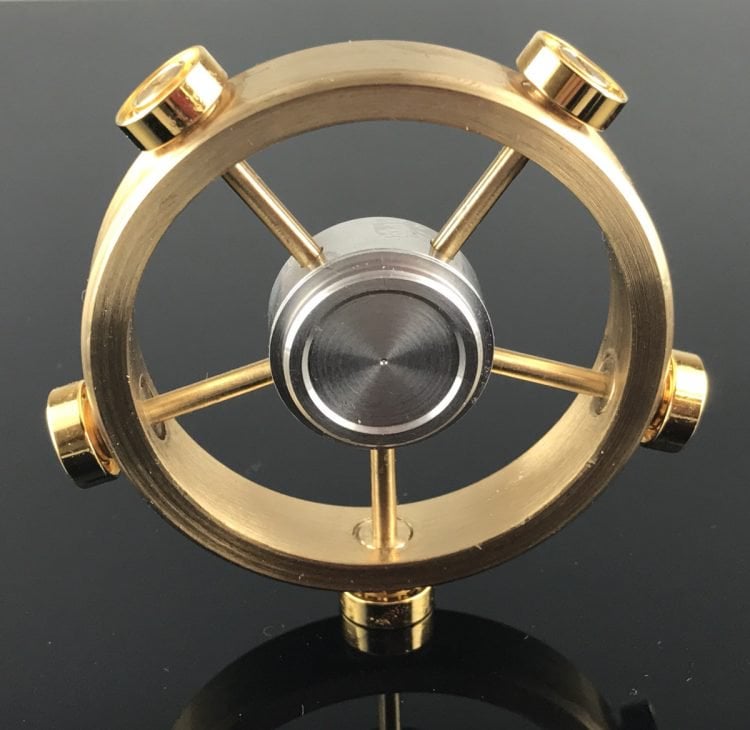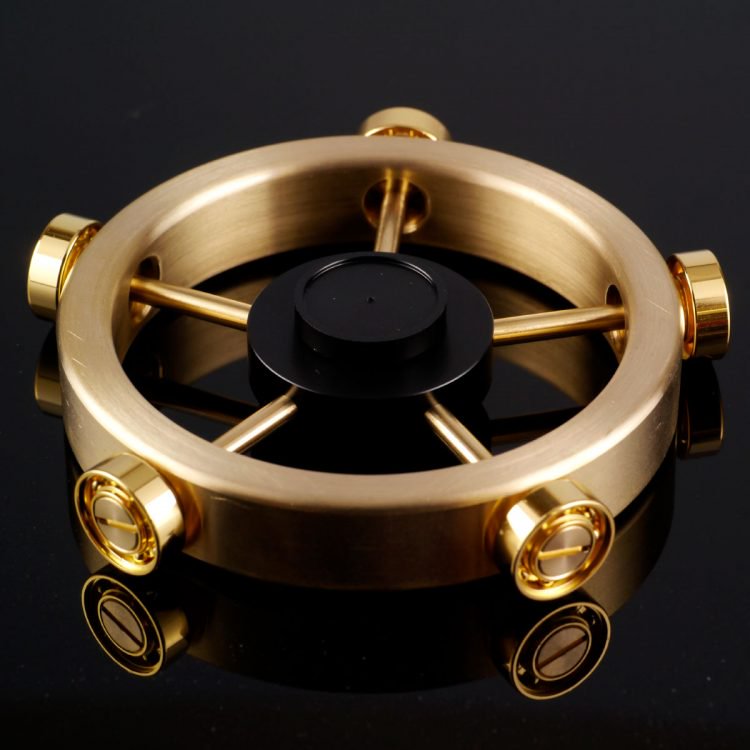
Fans of fidget spinners, 2017’s must-have toy, spend copious amounts of time spinning the three-pronged device with a flick of their finger. That’s because the addictive toys can rotate on their own, for only a few minutes at the most. However, if a Japanese company has its way, users will be able to relax and watch the gadget whirl for over 12 minutes with just one flick.
The advanced spinner is the brainchild of NSK Micro Precision Co., a machine components company that makes ball bearings for use in satellites and computer drives. According to the manufacturer, who first introduced the “Rolls Royce of fidget spinners” at the Tokyo Toy Show in June, the toy’s rotation prowess can be attributed to its superior design. Resembling a ship’s wheel, the fidget spinner is built using a thick brass ring on the outside and a light aluminum ball bearing, similar to those employed in hard drives and satellites, in the center. The combination helps increase the gadget’s centrifugal force, enabling it to spin for a longer time.

NSK president Toshikazu Ishii says the company decided to capitalize on the fidget spinner craze to stimulate interest in ball bearings. According to the executive, “hundreds of bearings are found in products all around us, but most people don’t see them, or pay much attention to them.” Unfortunately, while the NSK toy will certainly arouse curiosity, most fidget spinner fans will be unable to afford the hefty $157 (17,280 Japanese yen) it costs to obtain one.
Though they may be the rage now, fidget spinners are not a new invention. The first prototype was created by Florida-based Catherine Hettinger to entertain her seven-year-old daughter in 1994. After perfecting the design, Hettinger successfully sold the toys at arts and craft fairs around Florida and even obtained a patent. In the early 2000s, toy maker Hasbro approached the inventor to bring the fidget spinner to market. However, after extensive testing, the company decided not to proceed with production. In 2005, Hettinger let her design patent lapse simply because she could not afford to pay the $400 renewal fee.

Little did she know that twelve years later, her little invention would be touted as a way to relieve stress, treat people with ADHD and even help wean kids and adults off their smartphone addictions. While Hettinger is receiving no benefit from the millions of fidget spinners sold every day, she is not upset, saying, “I'm just pleased that something I designed is something that people understand and really works for them.”
Resources: guardian.com, odditycentral.com, japantimes.co.jp, nsk.com